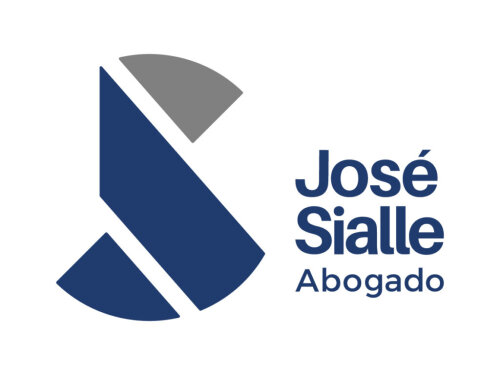Best Guardianship Lawyers in Córdoba
Share your needs with us, get contacted by law firms.
Free. Takes 2 min.
List of the best lawyers in Córdoba, Argentina
About Guardianship Law in Córdoba, Argentina
Guardianship in Córdoba, Argentina covers legal regimes designed to protect people who cannot fully exercise their rights or care for themselves - most commonly minors and adults with diminished mental or physical capacity. The national Civil and Commercial Code provides the primary substantive framework for parental authority, guardianship and curatorship, while provincial courts and administrative agencies handle procedures and protective measures. In Córdoba, family courts (Juzgados de Familia) and related public institutions apply national rules together with provincial procedural norms to appoint guardians, supervise their duties and decide on related measures such as removal of parental authority, temporary protection and inheritance issues.
Why You May Need a Lawyer
Guardianship matters often involve complex legal, medical and social facts and can have lasting consequences for the person under protection and the proposed guardian. You may need a lawyer when:
- You must petition a court to appoint a guardian or curator for a minor or an adult with diminished capacity.
- You are a parent facing removal or limitation of parental authority, or you need to defend parental rights.
- You seek to contest an existing guardianship or have a guardian removed for neglect, abuse or breach of duties.
- There is an emergency situation requiring rapid protective measures - for example, risk of abandonment, abuse or lack of medical treatment.
- You need help with inheritance, property management or administrative procedures linked to guardianship duties.
- You qualify for a public defender or need to negotiate with social services, medical teams or schools as part of a protective plan.
Local Laws Overview
- National framework - The Código Civil y Comercial de la Nación (Civil and Commercial Code) is the primary reference for guardianship, parental authority (patria potestad), tutela (guardianship of minors when parents are absent or deprived) and curatela (curatorship for adults with limited capacity). The Code defines duties, appointment rules, reporting obligations and limits on decision-making.
- Types of protective regimes - For minors, parental authority remains the default. When parents are unable or unfit, a guardian may be appointed by the family court. For adults with diminished capacity, the court may establish curatorship - full or partial - tailored to the person’s needs.
- Procedural aspects - In Córdoba, family courts handle petitions for guardianship, removal of parental authority and related measures. Proceedings typically require a petition, documentary evidence, social and medical reports and evaluations by court-appointed experts. Courts may order provisional or precautionary measures while the case is pending.
- Role of public institutions - The Ministerio Público, provincial child-protection agencies and public defenders play active roles. They may intervene to represent the interests of minors or incapacitated adults and to request protective measures. Social services and health authorities frequently provide the assessments courts rely on.
- Supervision and reporting - Guardians and curators have ongoing duties to administer assets responsibly, provide care, and periodically report to the court. Courts can remove or replace guardians for misconduct or inability to fulfill duties.
Frequently Asked Questions
What is the difference between parental authority, guardianship and curatorship?
Parental authority - "patria potestad" - is the set of rights and duties parents have over their minor children. Guardianship or tutela usually refers to the appointment of a third person to care for a minor when parents are absent, deceased or deprived of parental authority. Curatorship - "curatela" - applies to adults who lack full legal capacity due to mental or physical conditions; a curator assists or represents them in defined areas.
Who can request guardianship in Córdoba?
Relatives, social agencies, prosecutors, or any person with a legitimate interest can file a petition with the family court requesting appointment of a guardian or curator. In emergencies, the court or public agencies may initiate protective proceedings ex officio.
How do I start the guardianship process?
File a petition at the competent family court in Córdoba. The petition should describe the reasons for the request, identity of the proposed guardian, and supporting evidence - medical reports, social service records, birth certificates and any relevant documents. The court will evaluate the claim and may order expert reports and hearings.
Can a non-Argentinian citizen be appointed guardian?
Yes - foreign nationals can be appointed as guardians or curators, subject to the court’s verification of suitability and any immigration or residence requirements. The court will prioritize the best interest of the protected person and the practical ability of the proposed guardian to exercise duties in Córdoba.
How long does the process take?
Timing varies widely. Simple, uncontested matters with full documentation may be resolved in a few months. Complex cases involving expert evaluations, social investigations or contested guardianship can take much longer. Courts can order provisional measures if immediate protection is required.
What are the duties and limits of a guardian or curator?
Guardians and curators must care for the protected person’s personal welfare, manage assets responsibly, represent them in legal acts when authorized, and submit periodic reports to the court. They cannot dispose of assets beyond the scope authorized by the court, and they must act in the best interest of the protected person.
Can a guardian be removed or replaced?
Yes. The court may remove or replace a guardian for abuse, neglect, mismanagement of assets, incapacity to fulfill duties, or loss of suitability. Interested parties - including the protected person when able - may request removal and present evidence to the court.
What emergency measures are available?
The family court can order provisional protective measures - for example temporary placement, medical treatment, or restricted visitation - while the guardianship process is pending. These measures aim to address immediate risks to safety or health.
What evidence does the court consider?
Courts rely on medical and psychological reports, social service investigations, police or judicial records if relevant, witness statements, and documentation of family relationships and finances. Expert evaluations ordered by the court are often decisive.
How much does a guardianship procedure cost and can I get free legal help?
Costs depend on lawyer fees, court fees and costs for expert reports. People with limited means may be eligible for a public defender or free legal assistance through the provincial Defensoría or legal aid programs. Discuss fees and possible public assistance at your first consultation.
Additional Resources
- Family Courts - Juzgados de Familia of the Province of Córdoba handle guardianship, parental authority and related family matters.
- Civil and Commercial Code - The national Civil and Commercial Code is the core legal text governing guardianship, curatorship and parental authority.
- Provincial child and family welfare agencies - Provincial secretariats or directorates responsible for childhood, adolescence and family policies provide social assessments and protective services.
- Ministerio Público and Public Defender offices - Public prosecutors and public defenders can represent the interests of minors and incapacitated adults, or provide legal defense for applicants with limited resources.
- Social services and health teams - Hospitals, mental health services and social workers frequently participate in evaluations and in implementing protection plans ordered by the court.
- Non-governmental organizations - Local NGOs focused on children's rights, disability rights and family support can offer guidance, counseling and social aid during proceedings.
Next Steps
1. Gather documents - collect identity documents (DNI), birth and marriage certificates, medical reports, social service records, proof of residence and any evidence of risk or neglect.
2. Seek an initial legal consultation - contact a lawyer specialized in family law or guardianship. Ask about experience with guardianship cases, fee structure and estimated timelines.
3. Consider public assistance - if you cannot afford a private lawyer, contact the provincial public defender or legal aid office to learn about free or subsidized representation.
4. Prepare for court - work with your lawyer to draft the petition and assemble supporting evidence. Be ready for expert evaluations and to cooperate with social services.
5. Take urgent action if necessary - if a person is in immediate danger, request provisional measures or emergency intervention from the family court, police or child-protection authorities.
6. Follow-up and reporting - if you are appointed guardian or curator, maintain accurate records, fulfill reporting obligations to the court and coordinate with health and social services to ensure the protected person’s wellbeing.
If you are unsure where to start, begin by contacting the nearest family court or a family law attorney for a short orientation about your specific situation and available options.
Lawzana helps you find the best lawyers and law firms in Córdoba through a curated and pre-screened list of qualified legal professionals. Our platform offers rankings and detailed profiles of attorneys and law firms, allowing you to compare based on practice areas, including Guardianship, experience, and client feedback.
Each profile includes a description of the firm's areas of practice, client reviews, team members and partners, year of establishment, spoken languages, office locations, contact information, social media presence, and any published articles or resources. Most firms on our platform speak English and are experienced in both local and international legal matters.
Get a quote from top-rated law firms in Córdoba, Argentina — quickly, securely, and without unnecessary hassle.
Disclaimer:
The information provided on this page is for general informational purposes only and does not constitute legal advice. While we strive to ensure the accuracy and relevance of the content, legal information may change over time, and interpretations of the law can vary. You should always consult with a qualified legal professional for advice specific to your situation.
We disclaim all liability for actions taken or not taken based on the content of this page. If you believe any information is incorrect or outdated, please contact us, and we will review and update it where appropriate.









